Checklist for a perfect Trade Show or Consumer Fair
Organizing a trade show or a consumer fair can sometimes be tricky. This article will give you some clear guideline and useful tips to organize your event as efficiently as possible.
Trade Shows and Consumer Fairs are essential to business growth. These events are great opportunities to meet new customers and suppliers and to understand consumers' needs.
Nevertheless, organizing such fairs can be very complicated and tricky, especially if you do not have much experience in this field.
In the past few years I have organized fairs in America, Europe and Asia. All fairs are different and must be handled accordingly. Some fairs are very organized and provide you with very clear guidelines that you only need to follow. Others are absolutely messy and force you to always run after the information. Some will provide you with efficient service and low response time while others will simply ignore your requests.
Fair after fair I have improved the way I was handling the organization and developed documents and templates that helped me gaining efficiency and saving precious time.
The key to success is very simple: organization. In this article I will share with you my experience as well as some key documents you might need to organize your own event.

Please find below some direct links to the essentials parts of this article:
Organization Checklist
- Fair rules
- Checklist
- Merchandise
- Floor plan
- Construction needs
- Electrical needs
- Light
- Carpet
- Furniture
- TV
- Internet
- Booth decoration
- Product placement
- Logistic
- Merchandise return
- Badges and tickets
- Customer report template
- Cleaning products and office supplies
- Fair organization
- Plane tickets and hotel
- Personal transportation
- Marketing opportunities
- Cost overview
Documents
All documents mentioned in this article are available for download and free to use or share. Please note that those documents cannot be sold or modified without my agreement.
The following documents are available:
- Checklist template
- Expenses overview
- Floor plan template
- Wall plan template
- Samples list template
To open those files you will need to have Microsoft Excel or Open Office, Adobe Acrobat Reader and Illustrator.
Fair organization templates download.
Checklist
The only way to be efficient in the organization of a fair is to prepare a checklist. The list below is built with my own experience. You do not need to follow it in this exact order: efficiency also depends on flexibility!
The important is to make sure you forget no point and cover everything. You might as well adapt it to your personal needs and requirements.
Fair rules
This is where you should start. Download the fair rules and regulations on the organizer's website or ask a representative to send you the document.
Read those rules very carefully: all the rest will depend on it.
You should extract from this document all the important deadlines to respect.
Many fairs' organizers will give penalty once the deadline passed.
Checklist
Prepare your own checklist.
This list must contain all the details you must fix before the beginning of the fair. You should also consider integrating the various deadlines as well as the people in charge for a better follow up.
I have created a standard checklist template available in the checklist & documents package.
Merchandise
Before thinking of how to organize your booth, you must know what products you wish to display.
Define a list of items to show with their respective quantities. That way, you will be able to prepare your booth outlook as well as the merchandise shipment.
I have prepared a standard sample list template available in the checklist & documents package.
Floor plan
This is the base of everything. The earlier you start with this tool, the better the result.
A floor plan is a drawing representing your booth on top view with all the elements composing it: furniture, lights, products, etc.
Building a floor plan will help you noticing problems before it is too late and that would also ease your communications with the fair organizer.
I have created a standard floor plan template available in the checklist & documents package.
Constructions needs
Are you planning on having special constructions on your booth? Do you want to create a closed room, add a second floor or build some customized furniture?
Those things take time, you've better organize it early!
Electrical needs
Will you need electricity on your booth?
Using TV, computers, charging your phone... all those use electricity! Check out how to organize power supply on your booth before placing your items.
Have you thought about the type of voltage and plug used at the fair? You might want to organize adaptors.
Also, did you check how many outlets will be provided? It might be useful to organize some multi strips to provide the correct power to the booth.
Light
One of the most efficient way to give your products that attention they deserve is to light them properly.
Usually, the standard lighting of a booth isn't optimal. You might consider renting some additional light.
Carpet
Most fairs' organizers let you choose your carpet color and texture.
Take this opportunity to bring your corporate identity to your booth!
Furniture
A booth without furniture isn't working. You must dress your booth with the most efficient furniture possible to both highlight your products and attract visitors.
Your list of furniture should at least contain:
- tables and chairs - convenient to sign contracts!
- trash bin - hygiene is never a bad thing
- displays and shelves - you must display your products correctly
Beside those basics, you might also want to rent extra furniture such as a reception desk, a coat rack or a brochures display. Go through the catalogue provided by the fair organizer and check what could make your booth more efficient.
TV
Will you need a TV on your booth? You might want to show your commercials or product demonstration.
What about the source of the movie? Will you use USB, DVD, blue-ray? Is it included in the package? Do you know the ratio of the TV (16:9, 4:3)? What type of file can be played (.mpg, .avi, .mov, etc.).
Solve all those details before going on the fair!
Internet
You might eventually need to have access to the internet while on the fair.
Some fairs provide free WIFI on the spot but with a very low bandwidth. If you need internet, do not rely on such free service.
It can also happen that the price of the internet on the booth is absolutely prohibitive. In this case, plan ahead and find solutions so that you don't suffer from it once it is too late to arrange alternatives.
Booth decoration
Your booth represents your brand and must carry your corporate identity or your brand image.
Therefore, you will need to decorate it. Based on your habits and style, you might use some simple posters, decorate walls with foamboards, use textile based walls, etc. The important is that you define early the technic you would like to use so that you can estimate the cost and start developing the design.
Remember to read carefully the fair's regulations: some restrictions might exist regarding the type of decoration, the placement or the height.
Product placement
Now that you know what merchandise you want to display, which furniture you will be using and what type of decoration you want to integrate, it is time to create a wall plan.
The wall plan is like a floor plan but with front view instead of top. The wall plan will enable you to visualize the design of your booth and the organization of the space (product placement). This document might also ease the communications with the fair organizer.
I have integrated a template of wall plan in the checklist & documents package.
Logistics
You know which merchandise you will send to the booth. But depending on the location of the fair, sending your items might be more or less complicated.
You must consider the time and money involved in the shipment. This step is essential: you wouldn't want to arrive on an empty booth!
Then, you must consider the customs regulation relative to the country hosting the fair. Make sure you send the merchandise as early as possible: first of all because it saves cost (urgent shipment is always more expensive than slow one) then because if your merchandise gets stopped at the custom for any reason, you might want to have enough time to solve the problem before the show.
It is also the time to consider the goods handling on the spot: who will receive the merchandise? Does the fair provide a warehouse service? Will the organizer handle your goods while you are away, and for what price?
The logistic is one of the most complicated points when organizing a tradeshow or a consumer fair: give yourself time to go through those details.
Merchandise return
You have prepared your fair and all is on track, but have you thought of "after"?
What will happen to your products once the fair over? Will you sell them, trash them, return them?
If you are planning on shipping the goods back to your company, you might want to organize the details before the fair!
Badges and tickets
To enter the fair, you will need to present a badge. Depending on the fair policies, your badge might be automatically sent to your postal address or you might need to print it yourself or request it at the fair. Clarify the situation before going to avoid unpleasant surprises!
Also, the entrance of the fair is usually open to exhibitors one to two days prior to the public opening (time for you to arrange your booth) and it can happen that the badge to access during that period is different. Check it out.
Customer report template
You are going on a consumer fair to promote and sell products.
If you join a tradeshow, that is certainly to meet customers and sign contracts.
To be efficient, you should organize yourself and prepare a customer report template.
This document should have a clear structure and contain fields for customer's name, address, company, phone number, email etc. It should also have space to indicate the customer's interest and summarize what was discussed with him on the booth.
Finally, your document should indicate what has to be done next (contact the customer after the fair, send some documents, wait for him to contact us, etc.). Don't forget to keep some space to attach his business card!
Another solution is to use a professional tool to record such information. I personally recommend using myfairtool to record customer information on exhibitions: with it you will be able to capture all your prospect details, enrich your report with comments, photos or tags, send immediate follow-up emails and monitor your own progress.
Cleaning products and office supplies
This is the survival kit for tradeshows and consumers fairs.
Whenever you go on a fair, you should always have a special kit with you. This tradeshow-kit should contain:
- tape (to close cartons and fix minor problems)
- double tape (you might need to fix some decoration falling off)
- pen and paper (you will surely need to take notes)
- screwdriver (this can become very handy!)
- cutter (don't pack this one inside a carton as you will need it to open the cartons!)
- stapler (with extra staples to attach the business cards for example)
- paperclips (can become handy)
- personal business cards (to distribute to your customers)
Beside those essential elements, you will also need to plan for:
- water and drinks
- snacks (it can be exhausting to stand whole day on the booth after a long travel)
- cleaning products (each day after thousands of people visited you, you will need to clean up your booth)
- candies, chocolates, cookies (for your visitors to feel comfortable)
- flowers (you might want to make your booth more home-like)
Fair organization
You must prepare all details regarding the fair organization time such as opening and closing time, parking details, set-up times, authorizations for motorized vehicles on the fair, etc.
Knowing all those details and having them filed will avoid certain problems.
When you are going through this step you should create a folder containing copies of all the important documents (fair rules, floor plan, wall plan, communications with organizer, etc.). Bring all those documents along with you on the fair, it might help you solving difficulties when far from your office.
Plane tickets and hotel
The fair is one thing, but going there is another.
Don't forget to purchase your plane tickets and to book your hotel early: hotels around popular fairs are usually full several weeks prior to the show.
Personal transportation
Have you thought of how to go from the hotel to the fair? From the airport to your hotel?
You might want to check the rates of taxis and car rental before going on a trip.
Also, during fair periods, catching a free taxi might be complicated: prepare your trip carefully.
Marketing opportunities
Fairs usually offer marketing opportunities such as advertising in magazines or around the fair.
Some are interesting, others not. You should go through those opportunities to spot out what might be beneficial to the success of your business.
Other opportunities depend on you only. Don't forget to inform your customers, prospects and partners of your participation! Send them an email a month prior to the show, they might pay you a visit on the booth and sign some contracts!
This is also a great opportunity to convince your prospects: seeing the reaction of visitors with your products might convince them of their potential.
Did you prepare a Press Kit?
Press Kits are essentials! You could prepare a DVD, USB Key or simply a booklet containing some press release and product information, photos, presentation. This type of kit should then be offered to all press members visiting your booth. Prepare a few more to leave at the press office: usually, fairs have a special room for members of the press to collect press information before visiting booths.
Cost overview
Was your fair a success?
Like most marketing campaigns, evaluating the ROI (Return On Investment) of a fair isn't an easy task. How to calculate the amount of business created by the fair?
For this reason, it is essential that you keep a very detailed and precise cost overview. This cost overview will contain all costs, direct and indirect, generated by the fair. That way you will be able to evaluate your budget for your next fair and also to compare the cost to the actual profit made after the fair.
Do not wait for after the fair to start checking on your spending! Having a clear follow up of costs will enable you to see when you are crossing the red line: you surely do not want to spend more than you should.
I have integrated a template of cost overview in the checklist & documents package.
Organization is the key
We have mentioned it already: organization is the key to success.
When preparing your tradeshow or consumer fair, you will need to organize your various tasks efficiently and constantly follow up on the project's progress. i-list.it might be an efficient tool for you to keep control of your time.
Early planning is also an important aspect of success: you might as well do everything fine in the last second, but why taking risk and putting unnecessary pressure on your shoulders when you could actually plan ahead?
Next step
Alright, you have thought of everything and your fair is perfectly organized: good job!
Now all that matters is to succeed at the fair itself! I invite you to read "The three steps to successful trade shows and fairs" to complete this checklist and insure your success.
Last update: 2024-04-22 Tags: tradeshow tradefair consumer fair checklist fair organization
























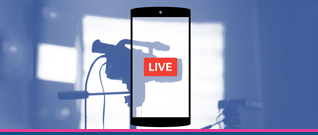
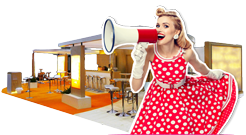


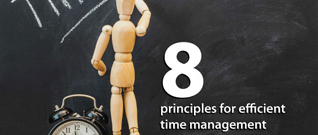
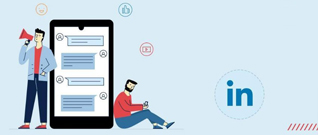


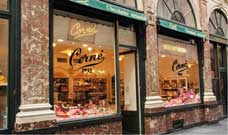
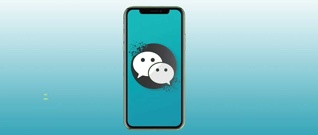
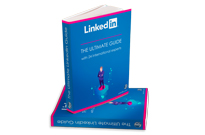
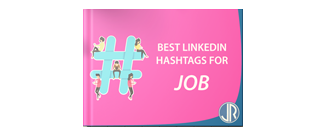
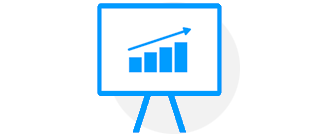
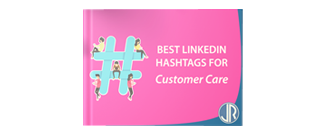

 Français
Français English
English